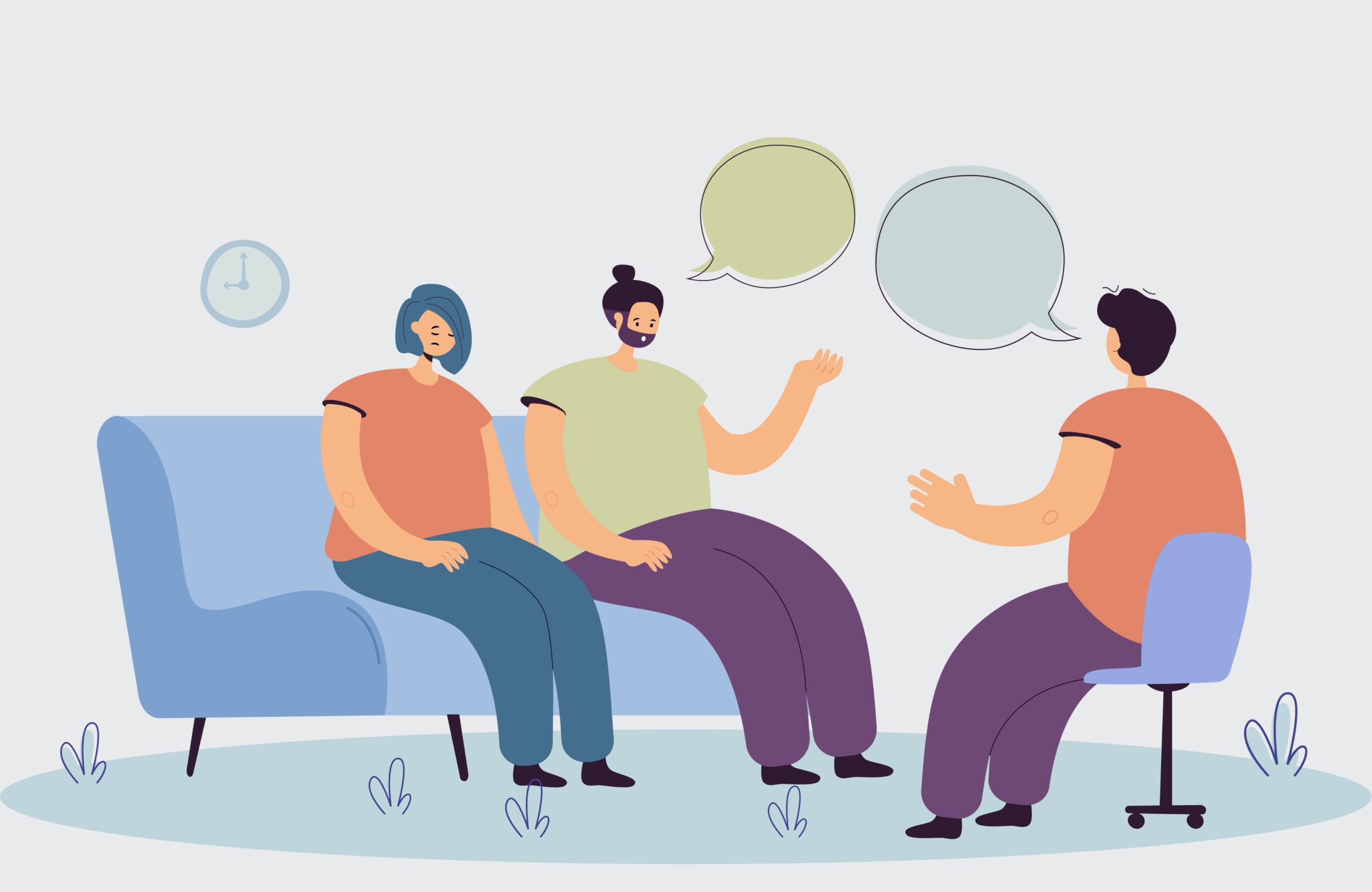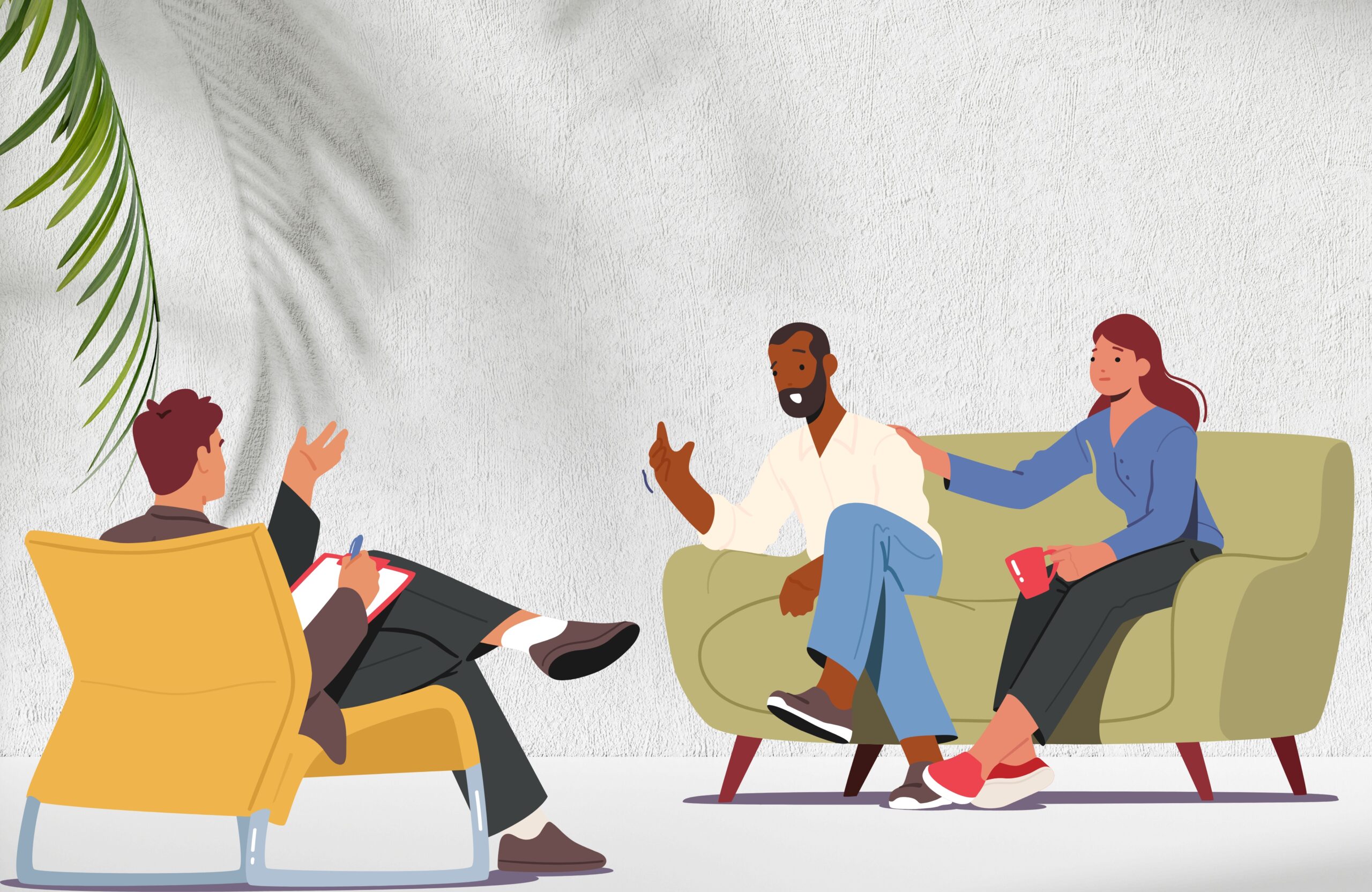In the intricate history of human connection, relationships stand as a complex and dynamic pattern that is as beautiful as it is challenging. Whether it is friendship, romance, or family, relationships often encounter both joys and challenges. When the need for relationship counseling arises, it serves as a guiding light, aiming to resolve the inevitable complexities that may occur and foster a healthier, more resilient connection.
Understanding the nuances of relationship counseling involves delving into its definition, exploring its techniques, and evaluating its efficacy. So, the aim of this article is to provide a comprehensive overview of relationship counseling, shedding light on its role in enhancing the structure of relationships, and examine the methods employed to facilitate positive change.
Defining Relationship Counseling
Relationship counseling, often referred to as couples therapy or marriage counseling, is a specialized form of psychotherapy designed to help couples navigate and resolve issues within their relationship. The primary aim is to improve communication, enhance understanding, and foster a healthier connection between partners. It is important to note that relationship counseling isn’t exclusive to romantic partnerships; it can also be beneficial for family members, friends, or any individuals experiencing relational challenges.
At its core, relationship counseling is a therapeutic process designed to help couples and individuals overcome challenges and strengthen their bonds. It involves sessions with trained professionals who offer guidance and support in addressing interpersonal issues. Whether you’re grappling with communication breakdowns, trust issues, or simply seeking to enhance your connection, relationship counseling provides a safe space for exploration.
Relationship counseling goes beyond focusing on problems and challenges with the people around you. It also offers a transformative journey about you—your self-discovery, personal empowerment, reconnection, and growth.
Types of Relationship Counseling
Couples Therapy
Couples therapy is a common form of relationship counseling where partners engage in joint sessions. These sessions focus on enhancing communication, resolving conflicts, and rebuilding trust. Platforms like Calmerry offer specialized couples therapy sessions tailored to address a wide array of relationship issues.
Couples therapy, also known as relationship counseling or marriage therapy, stands as a cornerstone in the realm of relationship counseling. This approach centers on joint sessions where partners collaboratively engage with a trained therapist to address and resolve issues within their relationship. The fundamental objective is to enhance communication, rebuild trust, and foster a healthier connection between individuals.
The strength of couples therapy lies in its ability to offer a shared space for couples to work through challenges, rebuild intimacy, and fortify the emotional bonds that form the foundation of a resilient partnership.
Individual Therapy for Relationship Issues
Individual therapy for relationship issues takes a distinctive approach by recognizing the significance of personal well-being within the context of a relationship. This form of relationship counseling acknowledges that an individual’s mental health significantly influences the dynamics of a partnership.
Choosing between individual, couples, or marriage therapy depends on the specific circumstances and needs of the individuals involved. While couples therapy concentrates on shared dynamics and communication, individual therapy emphasizes personal empowerment, self-discovery, and a deeper understanding of how one’s individual well-being impacts the relationship.
Marriage Counseling
Marriage counseling is a specialized form of relationship counseling that hones in on the unique challenges faced within the context of a marital partnership. While similar to couples therapy, marriage counseling often places a specific emphasis on the intricacies and commitments inherent in marriage.
Marriage counseling sessions delve into the complexities of married life, addressing issues such as financial stress, parenting disagreements, or the impact of external factors on the relationship. Therapists guide couples through communication strategies, conflict resolution, and collaborative problem-solving techniques to strengthen the foundation of their marital bond.

Individual Therapy vs. Couples or Marriage Therapy: What to Choose?
Choosing between individual therapy and couples or marriage therapy is a pivotal decision, as it directly impacts the trajectory of the therapeutic journey. The distinction lies in the focus and goals of each approach and also depends on the individual’s specific circumstances and needs.
If the emphasis is on addressing personal growth, individual therapy may be the preferred choice. In contrast, if the goal is to enhance the partnership and navigate shared challenges, couples or marriage therapy may be more fitting. Some situations might call for a combination of both approaches to address the individual and collective aspects of a relationship comprehensively. Ultimately, the choice between individual and couples or marriage therapy should align with the desired outcomes and the unique dynamics of the individuals involved in the therapeutic process.
Techniques Employed in Relationship Counseling
Effective relationship counseling employs various techniques to uncover underlying issues and promote positive change. Here are several widely used approaches and strategies employed in counseling to address relationship issues.
- Cognitive-Behavioral Therapy (CBT): This method assists in identifying and altering negative thought patterns and behaviors that contribute to challenges in relationships.
- Emotion-Focused Therapy (EFT): This approach underscores the significance of emotional connections, helping individuals recognize and express their emotions in a safe and constructive manner. It places emphasis on fostering empathy, understanding, and emotional intimacy.
- Psychodynamic Therapy: This form of therapy delves into how past experiences and unresolved conflicts might influence existing patterns in relationships.
- Mindfulness-Based Approaches: These techniques aid in cultivating present-moment awareness and non-judgmental acceptance of one’s thoughts, emotions, and relationship experiences. They contribute to increased self-awareness, emotional regulation, and overall satisfaction in relationships.
- Solution-Focused Brief Therapy (SFBT): This method concentrates on identifying and building upon individual strengths and resources to instigate positive change. It prioritizes setting achievable goals, exploring solutions, and taking incremental steps to enhance relationship dynamics.
- Narrative Therapy: Involving the exploration and reshaping of personal and relational narratives, this therapy aims to empower individuals by acknowledging alternative perspectives, strengths, and possibilities for change.
- Interpersonal Psychotherapy (IPT): Aimed toward enhancing the quality of interpersonal relationships and social functioning, IPT provides strategies to address issues within specific areas (unresolved grief, interpersonal deficits, life transitions, and interpersonal conflicts). It also emphasizes understanding and utilizing emotions as signals in social interactions.
Efficacy and Benefits of Relationship Counseling
The outcomes of relationship counseling are multifaceted, offering a range of benefits:
Strengthening Bonds
Relationship counseling aims to strengthen emotional bonds between partners. By addressing underlying issues and fostering open communication, relationship counseling provides a pathway for couples to cultivate a deeper, more resilient connection. Effective communication emerges as a key outcome, teaching partners to express needs, feelings, and concerns openly, reducing misunderstandings, and creating a more supportive environment.
Improved Communication
Effective communication is a key outcome, teaching couples and individuals to communicate more openly and empathetically, reducing misunderstandings, and fostering a more supportive environment. Communication, often referred to as the lifeblood of any healthy relationship, is a key aspect addressed within the therapeutic process. Relationship counseling provides a dedicated space for couples to learn and practice effective communication strategies. And as Mark W. Boyer astutely noted, “Lack of communication can drive a spike between two people wider than any physical distance,” and that citation underscores the essence of relationship counseling – bridging the gaps in understanding and fostering connection.
Enhanced Problem-Solving Skills
Relationship counseling equips individuals and couples with valuable problem-solving skills and tools to navigate challenges effectively. Through techniques like conflict resolution and behavioral interventions, couples learn to address issues constructively, fostering understanding and compromise. This not only promotes resilience but also contributes to the longevity of the relationship.
Emotional Well-being
Crucially, relationship counseling recognizes the importance of individual emotional well-being. In the context of individual therapy within relationship counseling, personal growth and self-awareness become focal points. By addressing individual mental health, couples lay a foundation for a more robust and sustainable relationship.
Conclusion
In conclusion, relationship counseling embarks on a transformative journey that breathes new life into relationships. Whether through couples therapy or individual sessions, the techniques employed aim to enhance communication, resolve conflicts, and fortify emotional connections. Choosing a platform that recognizes the importance of both individual and joint sessions significantly impacts the effectiveness of the therapeutic process. As relationships evolve, relationship counseling stands as a valuable resource, offering guidance and support to navigate the intricate dance of human connection.
















